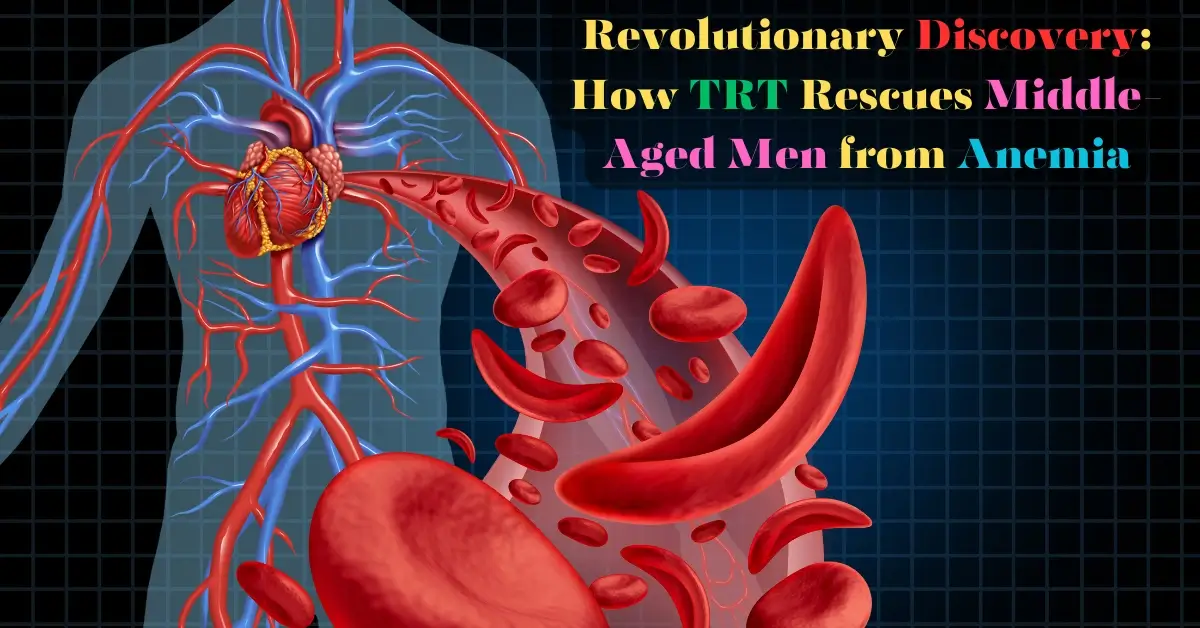
The Efficacy of Testosterone Replacement Therapy (TRT) in Correcting Anemia in Middle-Aged Men
Testosterone Replacement Therapy (TRT) has emerged as a promising treatment for correcting anemia in middle-aged and older men with hypogonadism. This article delves into the findings of a recent study published in JAMA Network Open, which sheds light on the efficacy of TRT in addressing anemia. The study, conducted at 316 U.S. sites, has significant implications for the management of anemia in men aged 45 to 80 years who exhibit symptoms of hypogonadism, as well as those with cardiovascular disease or increased cardiovascular disease risk.
The Study
Participant Demographics
The study, led by Karol M. Pencina, Ph.D., and his team from Brigham and Women’s Hospital in Boston, enrolled a total of 5,204 eligible men. These participants fell into two categories: those with anemia (815 men) and those without anemia (4,379 men). All participants were middle-aged and older, aged between 45 and 80 years, and displayed symptoms of hypogonadism, cardiovascular disease, or increased cardiovascular disease risk.
Treatment Comparison
The researchers aimed to investigate the efficacy of TRT in correcting anemia compared to a placebo. Over the course of the study, they made several observations:
Correcting Anemia in TRT-Treated Men
At six months, a significantly greater proportion of men receiving TRT had their anemia corrected, with 41.0 percent experiencing improvement compared to only 27.5 percent of the placebo group. This trend continued throughout the study, with TRT-treated men consistently outperforming their counterparts in terms of anemia correction at 12 months (45.0 vs. 33.9 percent), 24 months (42.8 vs. 30.9 percent), 36 months (43.5 vs. 33.2 percent), and 48 months (44.6 vs. 39.2 percent).
Prevention of Anemia
Notably, TRT also exhibited a protective effect against the development of anemia in men who did not have anemia at the beginning of the study. This means that even in men without anemia, TRT was associated with a reduced incidence of this condition, further highlighting its potential as a preventative measure.
Association with Hemoglobin and Energy Levels
The study also found a significant association between changes in hemoglobin levels and changes in energy levels among the participants. This suggests that the benefits of TRT extend beyond correcting anemia, potentially enhancing overall well-being and vitality in middle-aged and older men.
Conclusion
The findings of this comprehensive study emphasize the efficacy of Testosterone Replacement Therapy (TRT) in correcting anemia among middle-aged and older men with hypogonadism. TRT not only outperformed a placebo in addressing anemia but also displayed a preventive effect on those without anemia, contributing to overall well-being by potentially boosting energy levels. These results are of significant relevance for healthcare providers and patients alike, offering a potential solution for a common issue that affects many middle-aged men.





